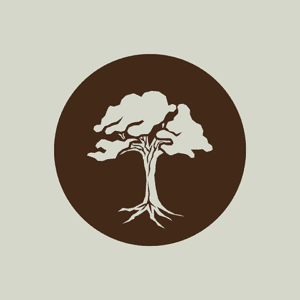I once saw a phrase in a magazine that read “It’s no longer ‘Box Wine’. The classy term is ‘Cardboarddeaux’. One of the most fascinating things about wine is that it is not its own language. You’re probably really confused right now, let me explain. Food as an example is its own language because if I say an apple tastes like an apple, you know what I mean. But if I say a ‘Merlot’ tastes like a ‘Merlot’ or that the ‘Cabernet Sauvignon’ has ‘grip’…not very helpful is it? With wine, you need to make use of other “languages” in order to put your taste impressions into words. Wine is therefore potentially a very complex subject and the lingo that gets used just adds to the confusion, it can be quite intimidating until you’re familiar with the basic terms. Having been living in Cape town (the wine capital of South Africa), for the past five years, I probably couldn’t list a single common wine term before posting this, which made writing an article about wine lingo seem a little bit ironic. Nonetheless I have managed to educate myself somewhat and will proceed to try to impart what I’ve learned. Instead of listing a whole dictionary of words, I’m going to narrow it down to a few commonly used wine terms and put them in contexts that make them easier to understand. Firstly, there are different types of wine lingo useful for different scenarios. For instance, how do you ask about or buy a certain wine when you don’t even know what it tastes like? Many of us (including myself), will rely heavily on reading the wine descriptions on the bottle to try and get an idea of how it will taste. So let me give you a run down that will hopefully supplement your wine knowledge and understanding of wine lingo.

Varietal wines are made from a single grape variety and bear that specific grape’s name on the bottles label. To bear a varietal name, such as Merlot or Chardonnay, on the label, the wine must contain at least 85% of that specific grape. The term vintage is also commonly used and refers to the year the grapes were picked or harvested (not bottled). This is the year that one sees on a wine bottle (ie: 2012 cabernet sauvignon). Here is an unusual one I came across: Busticket. It’s not what you think. It’s actually the name given by the wine industry to the certification seal for sustainability and integrity issued by the Wine and Spirit Board, which is found on the neck of most wines bottled in South Africa. Apparently the most abused term in the world of wine is ‘Reserve’. Theoretically, it is meant to be used by a winemaker only to identify his/her best product, however, the term is sometimes slapped on the labels of cheaper, mass-produced wines as well. Estate is a refined word for a wine farm. The words estate-bottled on a wine label indicate that the company who bottled the wine also grew the grapes and made the wine, which isn’t always the case. Basically, estate-bottled suggests accountability from the vineyard to the winemaking and right through to the bottling.
Let’s say I were to describe a wine you were about to taste as having ‘grip’. It wouldn’t mean that you’d be able to hold onto the wine firmly, it’s actually describing the particular combination of sensations the wine is giving off in your mouth such as acidity, bitterness and fruitiness. A collection of flowers, known as a ‘bouquet’, also alludes to the more complex collective of a wine’s aroma. But here comes the curveball, as it can also be referred to as the ‘nose’ of a wine. To reveal the nose of a wine, you would gently swirl the wine in your glass, exposing it to more oxygen which gets it release more of its aromatic molecules that make up the essential components of a wine’s bouquet.

This is the ultimate non-grape influence to the flavours in wine. Think of a winemaker using oak like a chef using salt. When a wine sits in oak to age, the oak slowly imparts its flavors and colour into the wine. If it’s a white wine, the longer it wine sits, the darker yellow it becomes. If the wine is red, the colour is not affected as much, but often the longer the wine sits in oak, the darker it can become. In terms of flavors, living inside oak is a compound called vanillin which tastes like vanilla. When a wine sits in oak for a long time, that compound leaves the wood and transfers it into the wine, which is why many red wines can have such prominent vanilla flavour. The other flavours that can be enhanced by oak are caramel, toffee, mocha or honey. A wine that is unoaked doesn’t have vanilla, cream, butter or baking spice notes in it. An unoaked white wine is more zesty with lemony flavours, while an unoaked red wine tends to be more tart. Have you heard of the term sommelier? This is technically the fancy name for a wine steward but potentially one that has a diploma or more extensive wine studies background. At a fine dining restaurant, a sommelier is generally the person who advises what best food to pair with your wine. This is a less commonly used term in South Africa but the ‘appellation’ tells you where the grapes were grown and the wine produced. The appellation is especially important in French wines that are known by place names and rarely list grape varieties (ie: Merlot, Pinotage and Chardonnay). Ok so we’re at the ‘finish wine’ now (more of a Dad joke than a wine term, that one), let me leave you with this quote from the late American wine researcher Maynard A. Amerine. “The fine wine leaves you with something pleasant; the ordinary wine just leaves.” Overall the best advice I can give you is to just go out and enjoy the pleasure of a good glass of wine with some folks that know what they’re talking about and just listen while you taste. It’s the best and most enjoyable way to learn about it.